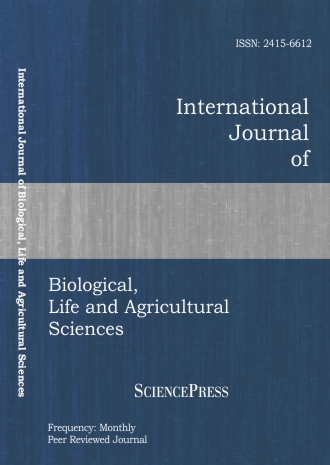
Scholarly
Volume:9, Issue: 8, 2015 Page No: 957 - 962
International Journal of Biological, Life and Agricultural Sciences
ISSN: 2415-6612
870 Downloads
Correlation between the Sowing Date and the Yield of Maize on Chernozem Soil, in Connection with the Leaf Area Index and the Photosynthesis
Our sowing date experiment took place in the Demonstration Garden of Institution of Plant Sciences, Centre for Agricultural Sciences of University of Debrecen, in 2012-2014. The paper contains data of test year 2014. Our purpose, besides several other examinations, was to observe how sowing date influences the leaf area index and the activity of photosynthesis of maize hybrids, and how those factors affect fruiting. In the experiment we monitored the change of the leaf area index and the photosynthesis of hybrids with four different growing seasons. The results obtained confirm that not only the environmental and agricultural factors in the growing season have effect on the yield, but also other factors like the leaf area index and the photosynthesis are determinative parameters, and all those factors together, modifying the effects of each other, develop average yields.
Authors:
References:
[1] Berzsenyi Z. (2009): Új kihívások és módszerek a növénytermesztési